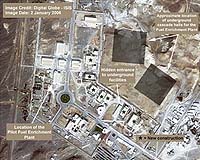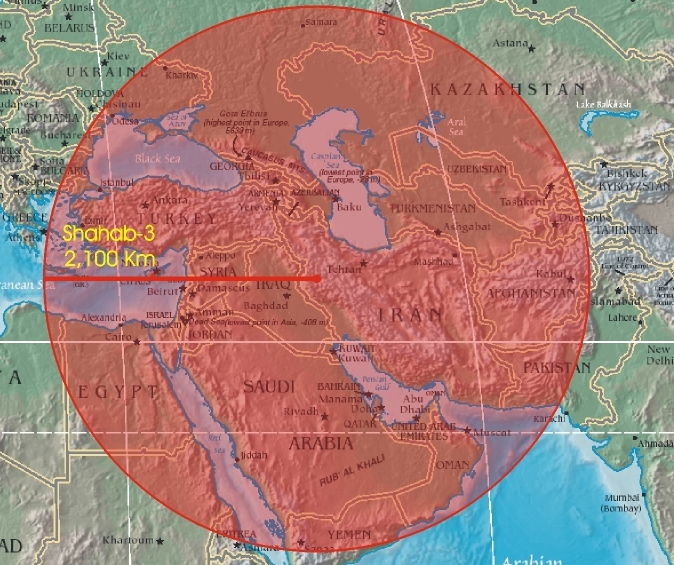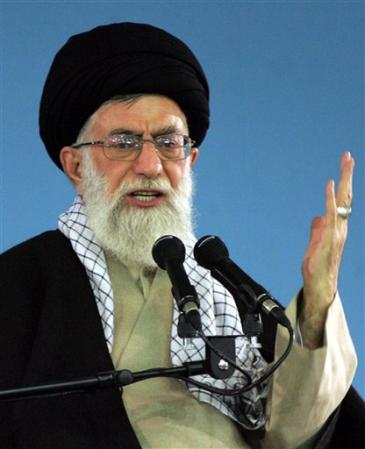Iran has been dominating the news over the last few years, mainly due to its development of a Nuclear Program.
Lets assess the issue at large, interests of each country in the region and world at large.
Iran's Nuclear Program
Iran's nuclear program appears to be the most pressing issue for the GCC and the west.
What does Iran stand to gain by going nuclear?
It is the same reason why India and others went nuclear. In the words of Former Indian President Abdul Kalam, nuclear weapons are a "weapon of peace". First and foremost for Iran, it is to deter aggressors/bullying and protect the country from the US. Having a nuclear weapon, can deter a major war and essentially cements Irans position as a regional and international player in politics.
Secondly, I believe it allows Iran to flex its muscles regionally. Consequently this is the biggest worry for those in the GCC.
The Iranians continue to agree to talk, just in order to stall for time and keep the clock ticking so that Iranian nuclear scientists can continue to work. It’s just a question of time for the Iranians to come out and say they have a bomb ready for testing.
Will the Iranians actually use it?
You may have heard in the press of Ahmadinejad telling people that Israel will be wiped off the map etc. The west is using this as a tool to scare ordinary people and obtain support for their governments actions on stopping the Iranian nuclear program.
No nation is crazy enough to use it as it will likely be met with an equi-proportionate nuclear response, especially if the target nation has a triad of nuclear missiles (Missiles/Bombs deliverable via Land systems, Airplanes and using Submarines).
Iran and perhaps the nuclear powers too, believe in MAD (Mutually Assured Destruction). This is where both sides have enough nuclear missiles to cause serious damage to each other.
So its safe to say that Iran isn't actually getting a nuclear weapon in order to use it, its more of a deterrent and use as a support to foreign policy objectives. However, as the USSR showed us, possessing a nuclear weapon does not guarantee the regime power to rule for an infinite period. Regime change is still very much possible and will continue to be a major threat in my opinion.
Factors to keep in mind:
- It takes more than one test to perfect the weapon (The West have conducted 100's of tests to perfect theirs)
- Even once you have a weapon, you need a credible delivery vehicle that can reach your intended enemy. This can take many years.
Anyone interested in understanding why India went nuclear and how it outsmarted the US in going nuclear, please read
Weapons of Peace: The Secret Story of India's quest to become a Nuclear Power by Raj Chengappa.
The
US
The views of the senior leadership in Iran is that the US cannot afford another major war. The US has announced timelines to pull out of Iraq and any increase in violence in Iraq will probably slow this process. Iran can obviously make it difficult for the US to pull out. An attack on Iran will in all likeliness cause an upsurge in violence in Iraq by Al Qods forces (Iranian special forces troops controlled by the Iranian Revolutionary Guard Corps). and Iranian controlled militia - specifically the Mahdi army (Officially disbanded but highly active in the South of Iraq) who have been undergoing training with the Hezbollah/IRGC in Iran.
Of course this is also a similar situation in Afghanistan, where certain part of the Taliban are backed by Iran. Evidence of Iranian made shells, weapons etc have showed up in Afghanistan
. Members of the Taliban still receive training in Iranian bases close to the border with Afghanistan.
Now the biggest reason why the US can't afford another war is because of its economy. Recent data published by the US Department of Labor of high unemployment (9.8%
) Some people go as far as to say that the unofficial US unemployment rate taking into consideration those that have not claimed unemployment benefits is around 1 in 5 people. The economic situation is not improving very much either, this can be witnessed by recent remarks of Ben Bernanke and further stimulus plans.
Imagine if the US was to go to war with Iran, would ordinary people in the street in the West be happy with this? Probably not. Public opinion would frown at such an idea, and will not be happy with a significant portion of their budgets/taxes being spent on "another war!”. Tehran also appears to agree with the idea that US cannot afford another war
. In my opinion this is also the same reason why Israel is being held back from attacking Iran, simply because Israel would not be doing itself any favours with the West (support that it needs for its very survival).
The GCC
The GCC is the one that is most worried about the Iranian threat. One can witness the statements from the recent wikileaks saga: HM King Abdullah of Saudi Arabia repeatedly exhorted the United States to "cut off the head of the snake" by launching military strikes to destroy Iran's nuclear program.
HM King Hamad of Bahrain argued "forcefully for taking action to terminate Iran's nuclear program, by whatever means necessary". "That program must be stopped," he was quoted as saying. "The danger of letting it go on is greater than the danger of stopping".
An Iranian nuclear weapon will provide a lot of power on foreign policy. Each nation in the GCC approaches the issue of Iran differently:
KSA
A crux of the issue for the Saudi's appears to be that Iran is a challenge for their regional power and a leader of Islam.
There are also worries that Iran will be able to meddle in the internal affairs of the Kingdom, especially amongst the significant Shia population in the East of the Kingdom (the majority of saudi oil is located in this region). Worst comes to worst Iran could back a succession movement in the East of the Kingdom.
Bahrain
Similar to the Saudi's, there is a significant Shi'ite population in the island nation. Bahrain has a long history with Iranian meddling in Internal affairs of Bahrain. The majority of the population in Bahrain is Shi'ite and the rulers are Sunni. I'll go into Iranian activities in the GCC as a whole in another post.
Qatar
Main issue for Qatar is believe it or not NATURAL GAS! Both Iran and Qatar share the worlds largest natural gas fields. They are competitors, in this way and are trying to extract as much gas as possible. As the sea borders are not actually demarcated by either Iran or Qatar, this can be a source of conflict. Iran has displayed aggression here by routinely sending IRGC personnel in boats to damage Qatari Gas infrastructure
.
UAE
Lesser Tunb, Greater Tunb and Abu Mussa Islands that are claimed by the UAE but currently under occupation of Iran.
The GCC
I have left out Kuwait, Oman and Qatar on purpose as most of the issues are covered above. Iran has made threats of attacking GCC nations in the event of any US/Israeli strike coming from their territory. Iranians have also made it clear that they have covert cells in the GCC, in the event of war, will be activated to damage infrastructure (electricity, roads, etc), conduct suicide attacks.
Is this threat for real? Bahrain has faced these threats from the 80s and have dismantled many cells since. Even to this day, building construction work in Manama usually ends up finding buried cache's of professionally packed weapons
.
Trained in Iran or in Hezbollah camps in the Oronte valley in Lebanon, the elements aim to launch sabotage operations against American and European interests in the event of an attack against Iran. In the event of a war, Iran will use these sleeper cells to launch a civil disobedience movement and send people to the US embassy and to the HQ of the 5th fleet in Manama
5.
The Saudi decision to set up a force to protect oil facilities came because of the discovery of Iranian infiltrated operatives in the East of the Kingdom.
So in short, Yes the Iranian threat is very real.
Conclusion
Will there be war?
Mmm.... Not sure. At this point in time, the US can't afford a war and neither will the US let anyone else launch any attacks against Iran. But Israel and the West will probably continue to use other methods to slow Iran down - Stuxnet and other covert means.
Does Iran want war?
Despite all the loud noises from Iranian generals of how they will strike their enemies, the Iranians do not want war. Iranians know that they will come out worse in any major war with the US. Iranians are happy to make gutsy moves, like the recent visit to the Lebanon - Israel border by Ahmadinejad, use IRGC boats to intimidate US Navy ships in the Straits of Hormuz. But in my opinion Iran will not do anything major to provoke the US.
In short, neither US or Iran wants a war! Neither will provoke the other in any big way.
What will happen if Iran does nuclearise?
The GCC will make peace with Iran and satisfy their needs. Game theory tells us that the GCC will probably nuclearise (How? Thats a different matter altogether). We have also seen this in the past between India and Pakistan. India was first to nuclearise and Pakistan responded with attaining nuclear weapons
.
The cheapest option is probably to strike an agreement with one of the nuclear powers - Probably India, Pakistan and the US as the most reliable partners out of the nuclear nations to provide an umbrella. However, will these nations risk getting involved in nuclear war? You decide.
There are a lot of side issues related here that I could not talk about due to time constraints. I hope this has provided readers with a useful
basic understanding on what is happening, what the world leaders are thinking about Iran and what we can expect to see in the future.
Thank you for reading.


















